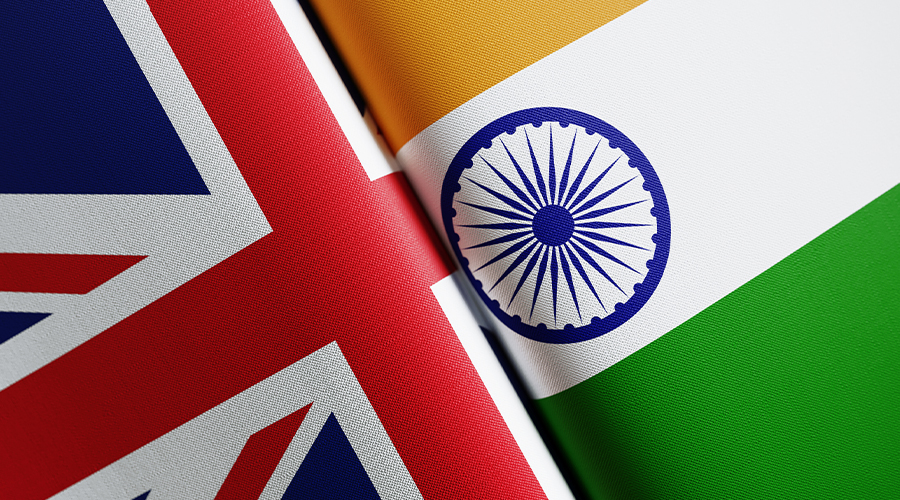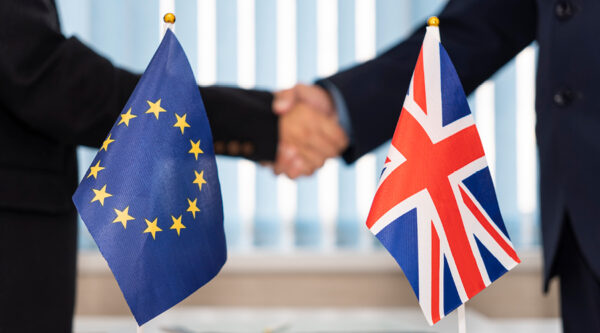

After three years of talks, India and the UK have agreed a Free Trade Agreement (“FTA”). Negotiations began in January 2021, with the then British Prime Minister Boris Johnson and the Indian Prime Minister Narendra Modi seeking deeper trade cooperation between both countries. By establishing an “Enhanced Trade Partnership” the two leaders pledged to double bilateral trade between both countries by 2030.
How significant is the deal?
The UK government website calls the deal, reached on 6 May 2025 by the current Prime Minister Sir Keir Starmer and Prime Minister Modi, “the best deal that any country has ever agreed with India.” Their note also outlines that the bilateral trade deal is expected to increase UK GDP by £4.9 billion and UK wages by £2.2 billion year on year.
What are the strategic objectives of the trade deal?
Reduce tariffs and boost trade
The FTA deal includes India eliminating tariffs on 99% of its exports to the UK, while the UK will do the same on 90% of its exports to India. These elements of the final trade deal, which involve amendments to the Customs Act, reflect the priorities expressed on both sides throughout the 15 rounds of talks.
Notably, India will benefit from reduced tariffs on key products including Scotch whiskey, British cars, certain foods and medical devices, while the UK consumer market will see lower taxes on goods imported from India including everything from clothing and footwear to frozen prawns. The deal enables India’s booming consumer market to continue its growth and the UK to benefit from cheaper, more seamless trade with India.
Attract UK Foreign Direct Investment (“FDI”)
Since the introduction of the “Make in India” initiative in 2014, India has tried to position itself as a global design and manufacturing leader. This means homing in on key growth sectors including healthcare, defence, R&D and cyber security, and encouraging FDI to help them realise these ambitions.
Enhance global reputations
India has one of the fastest-growing economies in the world. With international trade undergoing a turbulent transition period, establishing a strong alliance with the UK will help to solidify India’s reputation as a major global player. The FTA deal plays a significant role in Britain’s post-Brexit reputation, too, representing a crucial step in reducing their dependency on the EU.
Improve professional mobility
India has negotiated with the UK to enhance mobility opportunities for its skilled professionals in various sectors, in particular demanding more visas for Indian students and businesses. The final FTA enables Indian nationals employed by UK companies to obtain visas which can be renewed annually for a maximum of five years. Similarly, Indian nationals can now access intra-company transfer visas and graduate trainee visas, giving them enhanced flexibility to start or change careers across borders.
What does the India-UK FTA mean for businesses and individuals?
The signing of this deal has been a long time coming for both sides, who have long sought to capitalise on their complementary economies and strategic goals. The mutually beneficial agreement will no doubt bolster the already active UK-India corridor and encourage increasing investment and growth, but the deal won’t come into force for up to a year yet.
For those UK businesses that manufacture goods like cars and whiskey, the slashed tariffs will come as welcome news – especially given the context of US tariffs. Indian businesses that manufacture clothes and jewellery will likely see a jump in profit margins as they gain access to the UK market.
For individuals in both the UK and India, the impact of lower taxes will – both governments promise – result in cheaper prices and greater choice over time.
This article was written by Prathamesh Chavan, Associate at India Law Alliance, and Syed Alam, Partner and Head of Real Estate Healthcare at HCR Law.










